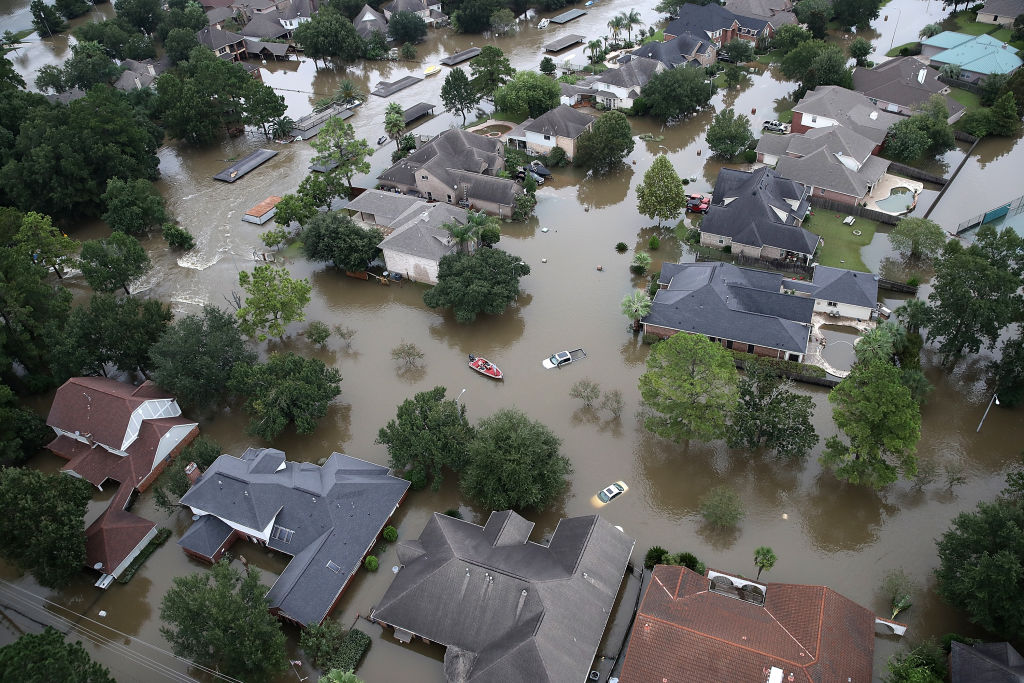Flooded homes near Lake Houston in the aftermath of Hurricane Harvey on August 30, 2017 in Houston, Texas.
Win McNamee/Getty Images
Repeated exposure to major disasters does not make people mentally stronger, according to a recent study from the Texas A&M University School of Public Health found: People who have been repeatedly exposed to major disasters show a reduction in mental health scores.
Furthermore, the research team found that the more experience people had with such events, the lower their mental health.
“We discovered the reverse of the adage ‘what doesn’t kill you makes you stronger,'” said the lead author of the study. Garett Sansom, research assistant professor at the Department of Environmental and Occupational Health in the School of Public Health.
Sansom and a team of researchers from Texas A&M studied people in the Houston area, which is susceptible to hurricanes and floods, as well as industrial emergencies. The results of the study were recently published in the magazine Natural Hazards.
Between 2000 and 2020, Texas, one of the states most prone to natural disasters, experienced 33 major disasters declared by the Federal Emergency Management Agency (FEMA). Many of these, hurricanes, winter weather, droughts and floods, affected the Houston area. The area has also been affected by emergencies such as explosions and chemical releases at nearby industrial facilities.
According to the research team, the combination of natural disasters and industrial facility emergencies presents a unique opportunity to observe impacts.
“There is an unfortunate truth that many communities that reside along the Gulf Coast are at the nexus of exposure to natural and anthropogenic, or man-made, hazards,” Sansom said.
The team used a 12-item short-form health survey to collect information. The survey evaluated the cumulative impacts of exposure to assess changes over time, producing a composite score for mental (MCS) and physical (PCS) health.
Most of the respondents reported that they experienced many dangerous events in the last five years. Hurricanes and floods (96.35 percent) were the most experienced events, followed by industrial fires (96.08), chemical spills (86.84), and tornadoes (79.82).
The team found that when people experienced two or more events in the past five years, their MCS averages fell below expected national levels.
“Mental health is often overlooked when responding to and preparing for exposure to hazards,” Sansom said. “However, to achieve community resiliency efforts, mental conditions must be taken into account.”
The study results help reveal the long-term mental impact hazards can have. More importantly, they underscore the need for targeted public health interventions for these people, as well as the communities in which they reside.
Sansom’s coauthors include Courtney Thompson Y Lindsay Sansom, both of the Texas A&M University Geography Department, Leanne Fawkes, a graduate research assistant in Occupational and Environmental Health, and Elizabeth Boerlin, a doctoral student in Occupational Safety and Health.
